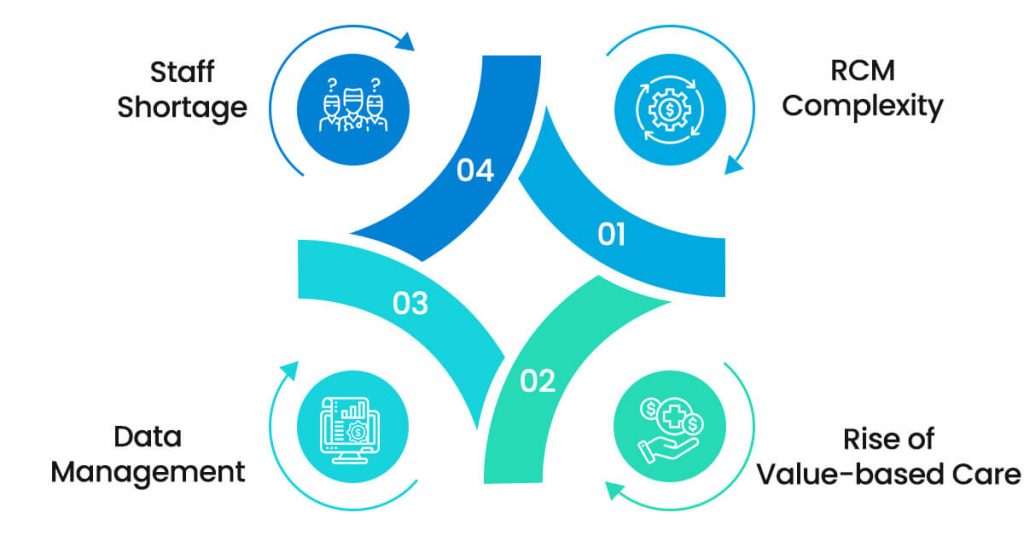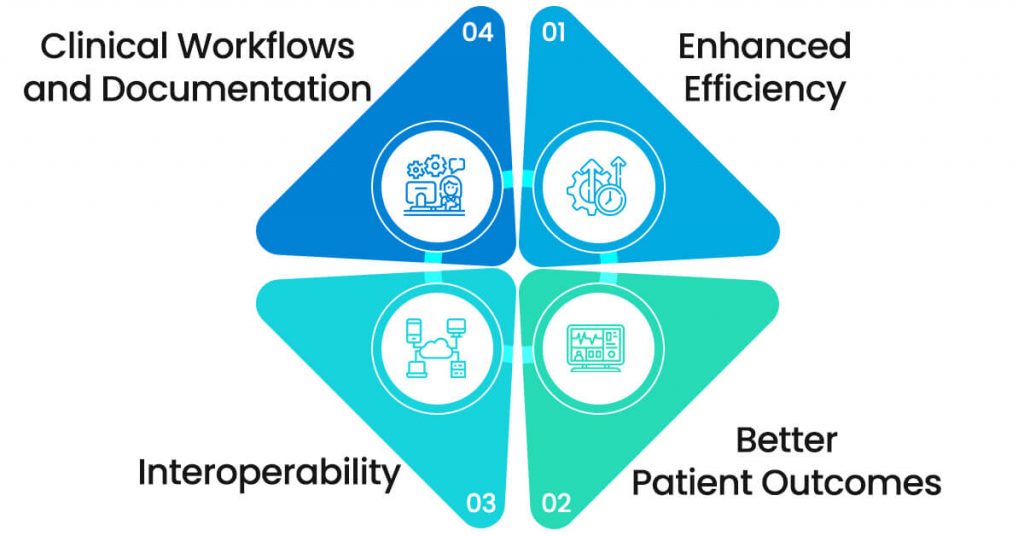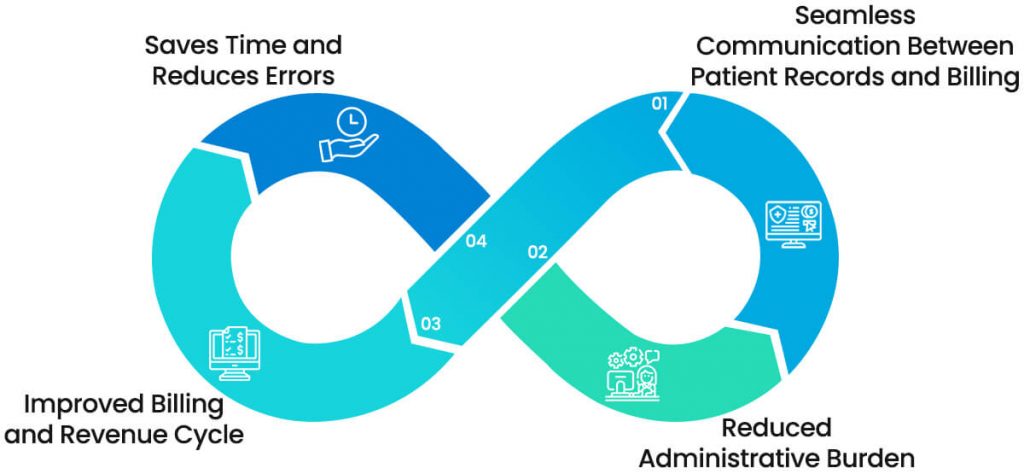A report revealed that more than 108,700 physicians shifted as employees, raising issues of healthcare consolidation.
This seismic change is highlighting that the healthcare environment is becoming more complex and difficult to navigate for independent practices. Independent practices find it difficult to retain their independence as they face the ever-changing demands of the healthcare industry and the regulatory requirements.
Inefficiencies in the system can take a lot of valuable time and resources, resulting in inefficient care delivery and medical errors that cause even more problems for the physicians. These challenges are also worsened by the absence of streamlined workflows and disconnected systems.
But integrated EHR solutions are proving to be a strong companion, which are providing end-to-end solutions to these nagging problems by improving operational efficiency and overall practice performance. This article shows how integrated EHR systems can revolutionize the operations of independent practice and make a significant change in efficiency and patient care. So, let us jump in!
The Growing Healthcare Complexity

1. RCM complexity:
Private practices have Revenue Cycle Management (RCM) as one of the major obstacles, and this brings in complications that could mess up a smooth workflow. To deal with these challenges, practices require professional expertise across all aspects of the revenue cycle management system process, which can be difficult and expensive to maintain in-house.
Recovering earned reimbursements from insurance companies is difficult due to high denial rates. This affects the financial health of private practices and highlights the need for medical billing solutions.
2. Rise of value-based care:
Transitioning to value-based care from the usual fee-for-service model creates additional practice complications. As the healthcare industry turns more towards value-based models where payment is related to the quality of services rather than the usual fee-for-service way, detailed documentation and adherence to specific metrics are crucial, which makes it difficult for small practices to manage effectively without integrated EHR software.
3. Data Management
The healthcare industry generates a huge amount of information of varying types daily. However, managing this sea of data is challenging even for big healthcare organizations, let alone small practices. Handling large volumes of patient data efficiently is one of the significant challenges for independent practices. Data management needs to be handled effectively for accuracy in patient records, billing, and regulatory compliance through electronic data interchange systems.
4. Staff shortage
Managing and expanding private practices is no longer easy with evolving regulatory compliance and severe staff shortages. Most independent practices can only afford very few employees who are usually over-stretched with administrative tasks. This results in a waste of resources and healthcare staff burnout. And puts the practice in a difficult position where integrated EHR and practice management software becomes essential.
What is EHR Integration, and Its Benefits

EHRs are digital records of a patient’s medical history. These records include such vital information as medication, treatment plans, diagnoses, and results of laboratory tests for the patient. EHR integration lets healthcare professionals access comprehensive medical records of a patient regardless of where the data was initially recorded.
An integrated EHR ensures seamless data exchange and interoperability, enhancing the healthcare experience and workflow through healthcare interoperability solutions.
Whenever practices implement integrated EHR software into their workflows, they can use health data and insights from these tools, detect and address inaccuracies, and maintain better clinical documentation through proactive monitoring and maintenance.
Now that you know what EHR and EHR integration are, let’s understand the benefits of an integrated EHR.
Key Benefits of Integrated EHR Systems
1. Enhanced efficiency:
Integrated EHR solutions automate tasks and reduce manual intervention. This reduces administrative burden and allows staff to focus on more critical functions with better productivity.
2. Better patient outcomes:
Providers can make informed decisions and improve care delivery with a comprehensive view of patient data through an integrated EHR for clinical workflows. This leads to better health outcomes for the individuals under their care.
3. Interoperability:
Seamless data exchange between systems ensures critical information is readily available when and where it’s needed. This helps promote coordinated care and collaboration among healthcare providers across the healthcare system. With the rise of data from innovations like wearables and monitoring devices, interoperability in integrated EHR systems has become even more critical for comprehensive care delivery.
4. Clinical Workflows and Documentation:
Integrated EHR for clinical workflows simplifies clinical workflows and documentation processes, reducing providers’ administrative burden. This allows providers to spend more time with patients, enhancing patient care and increasing job satisfaction among healthcare staff.
This is not all. It also empowers patients to access their medical records and actively participate in the care journey through telehealth solutions.
Why Integrate EHR and RCM Systems

Revenue cycle management is one of the major challenges to private healthcare practices. Reimbursement issues and rising denials directly impact the financial viability of the setting.
However, integrating EHR with RCM systems enables practices to have numerous benefits and overcome revenue challenges through streamlined operations and improved medical billing solutions.
Key Advantages of EHR-RCM Integration
1. Seamless communication between patient records and billing:
Integrating EHR with RCM facilitates seamless data exchange between patient records and billing processes. The seamless communication reduces the risk of errors and delays, making reimbursements more accurate and timely through integrated EHR and billing systems.
2. Reduced administrative burden:
Tasks such as verifying insurance eligibility, submitting claims, and posting payments can be automated through integrated EHR and billing systems, alleviating the workload on staff. This allows healthcare professionals to concentrate on patient care and other crucial activities, improving practice efficiency with integrated EHR and practice management software.
3. Improved billing and revenue cycle:
Integrated EHR and billing systems streamline the billing process, making it more efficient and accurate. With the right data transfer for eligibility verification and claim submissions, practices can streamline their revenue cycle process. This leads to fewer claim denials and rejections. Also, ensure timely reimbursement, improving the financial health of the practice.
4. Saves time and reduces errors:
Integrated EHR software minimizes the risk of data entry errors and saves time for administrative staff and clinicians. This enhances operational efficiency, enabling providers to spend more time with patients.
Wrapping Up
Independent practices can not only survive but flourish in this difficult healthcare environment by adopting such innovative solutions as integrated EHR technology. Integrated EHR solutions for small practices offer comprehensive functionality that transforms operations and enhances patient care delivery.
The cost of integrated EHR solutions is also decreasing and it brings a lot of returns in terms of efficiency and less administrative load. The availability of cloud-based integrated EHR systems provides practices of all sizes with access to these powerful tools, and HIPAA-compliant integrated EHR systems guarantee data security and regulatory compliance.
Integrated EHR for hospitals has the same benefits on a larger scale, which proves the versatility of the technology in various healthcare facilities. With these extensive solutions, the private practices can streamline their operations, enhance their efficiency, and increase the quality of care without losing their competitive advantage.
The post Integrated EHR Empowering Independent Practices With Better Efficiency appeared first on Osplabs.






